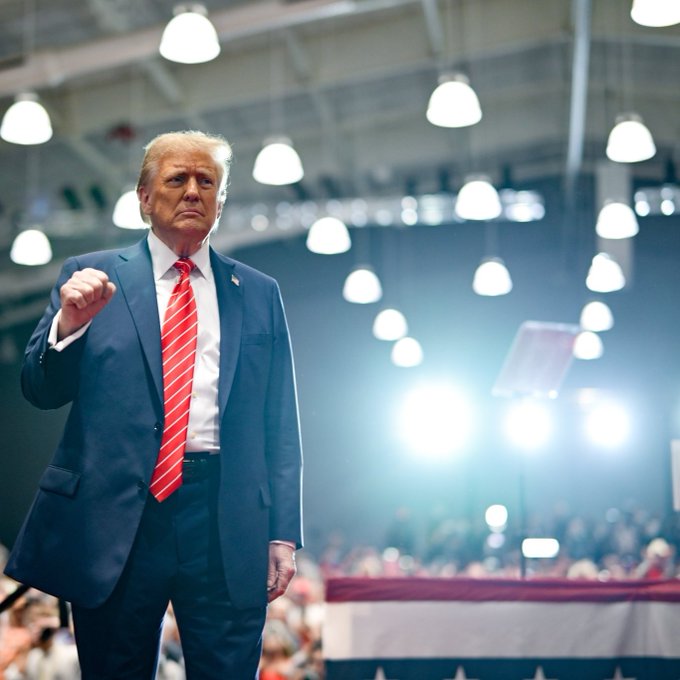On his first day back in the Oval Office, President Donald Trump stunned the nation by pardoning approximately 1,500 individuals involved in the January 6, 2021, Capitol riot. Trump’s sweeping clemency, which included six commutations, marked the fulfillment of a campaign promise to address what he called the “unfair” treatment of those charged in connection with the events.
“They’ve been in jail for a long time already,” Trump told reporters at the White House. “I see murderers in this country get two years, one year, and maybe no time. These people have been destroyed. What they’ve done to these people is outrageous.”
Trump’s decision drew immediate backlash from political opponents, who viewed the move as a dangerous precedent. For his supporters, however, the mass pardons symbolized vindication for individuals they believe were unjustly punished.
The Fallout of January 6
The Capitol riot, which erupted after Trump’s fiery speech alleging a stolen 2020 election, led to the criminal charging of 1,575 individuals, according to the Department of Justice (DOJ). More than 560 of these defendants received federal prison sentences, with charges ranging from disorderly conduct to assault.
The riot left five people dead, including Ashli Babbitt, who was fatally shot by police as she attempted to breach a secure area. Capitol Police officer Brian Sicknick, 42, died of a stroke the day after the attack, and two officers later died by suicide.
In his remarks, Trump lashed out at the judiciary and law enforcement, claiming the rioters had been treated far worse than perpetrators of other violent protests. “What happened in Seattle where they took over a big portion of the city? What happened in Portland, where they burned down parts of the city every day and people died? Nothing happened to anybody,” Trump argued.
A Controversial Start to a Second Term
Trump’s dramatic pardon announcement overshadowed his inaugural celebrations. At an event serving as a substitute for the traditional inaugural parade, Trump told supporters, “We’re going to the Oval Office, and we’re going to release our great hostages that didn’t do — for the most part, they didn’t do stuff wrong.”
He framed the riot participants as victims of a biased system. “The judges have been absolutely brutal. The prosecutors have been brutal. Nobody’s ever treated people in this country like that,” he said.
Critics, however, accused Trump of undermining the rule of law. “This is not justice. It’s a clear endorsement of lawlessness,” said Senator Chuck Schumer.
Clemency Amid Criticism
Trump’s pardons included figures like Enrique Tarrio, a leader of the Proud Boys sentenced to 22 years for seditious conspiracy. Tarrio was not physically present at the Capitol but was convicted for orchestrating aspects of the riot.
One notable beneficiary of the pardon was Philip Sean Grillo, a non-violent offender who had boldly declared during his sentencing that “Trump’s gonna pardon me anyways.” Grillo had been sentenced to a year in prison for disorderly conduct.
The orders mandated the immediate release of incarcerated rioters, according to the Federal Bureau of Prisons. However, Trump suggested that some cases might remain under review, stating, “The commutations would be the ones, and we’ll take a look.”
A Long-Standing Promise
Trump’s decision to pardon the rioters was foreshadowed as early as 2022, during a rally in Texas. “If I run, and if I win, we will treat those people from Jan. 6 fairly,” he had vowed, adding, “If it requires pardons, we will give them pardons because they are being treated so unfairly.”
As the 2024 election approached, Trump reiterated his intention to make the pardons a priority on his first day in office. “I’m going to be acting very quickly. First day,” he told NBC’s Kristen Welker. He criticized the conditions in which the rioters were held, calling the prisons “filthy” and “disgusting.”
Comparisons to Hunter Biden’s Pardon
Trump also took aim at former President Joe Biden for granting a controversial pardon to his son, Hunter Biden. On his social media platform, Truth Social, Trump posted, “Does the Pardon given by Joe to Hunter include the J-6 Hostages, who have now been imprisoned for years? Such an abuse and miscarriage of Justice!”
The comparison was seen as a way for Trump to highlight what he perceives as a double standard in the justice system.
Unresolved Questions
Despite the sweeping nature of the pardons, Trump hinted that there were “exceptions” for rioters deemed “radical” or “crazy.” Critics have questioned whether any acts of violence against police were included in the clemency orders.
In response to a reporter’s query, Trump remained evasive: “I will say this — some of them were outside agitators. But what do I know?” He repeated claims that federal agencies like the FBI may have played a role in inciting violence, an assertion that remains unsubstantiated.
Polarized Reactions
The pardons have intensified the already polarized debate over the January 6 riot. While Trump’s supporters hailed the move as justice for “political prisoners,” opponents warned of the broader implications for democracy.
“Pardoning violent offenders sends a message that undermines accountability,” said Liz Cheney, one of Trump’s staunchest Republican critics.
Meanwhile, Trump’s base celebrated the decision. “It’s about time,” said a supporter at the inaugural event. “Those people were standing up for what’s right, and they paid the price for it.”

